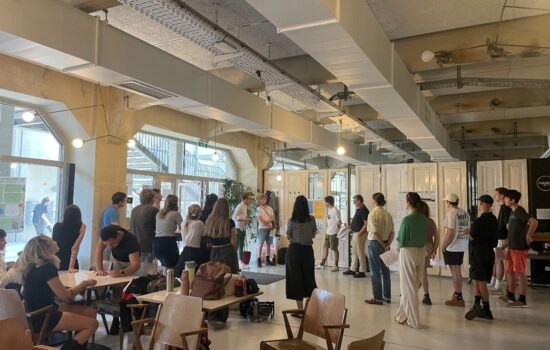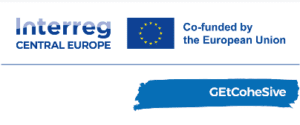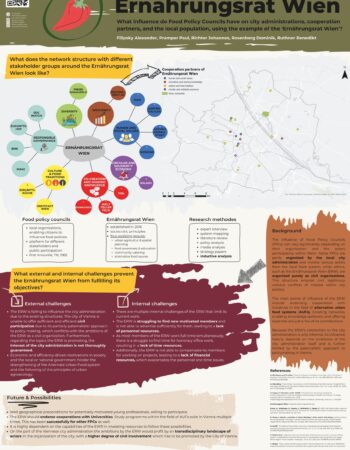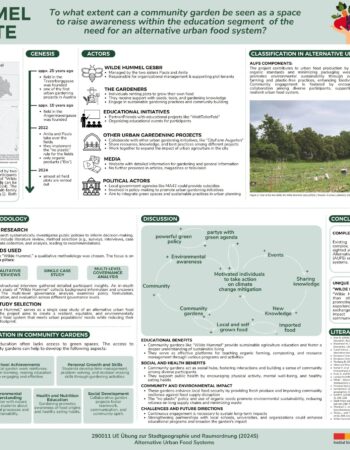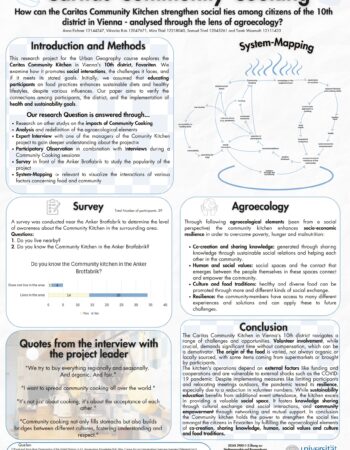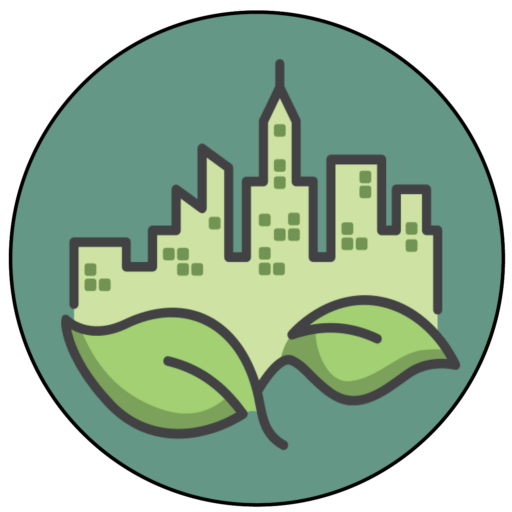What the Food? Exploring Alternative Urban Food Systems
Practical Exercise in Urban Geography and Planning - Poster Fair (Summer term 2024)
Did you know that our food systems are responsible for 80% of the world’s freshwater use and 30% of global emissions?
Our food system faces significant challenges. Instead of being designed sustainably, its profit-oriented nature results in environmental and social damages. The challenges of our food system are particularly evident in cities due to their rapidly growing population and changing demographics. It requires rethinking the current social, ecological, and economic spatial processes in cities and their connection to the urban and global food system. Accordingly, alternative urban food system practices that diverge from the existing path of a globally dispersed food system with unethical, standardized, and harmful industrial agriculture methods and exploitative labor processes are gaining momentum. This has inspired ideas of an ‘alternative’ food system which prioritizes security, justice, and resilience.
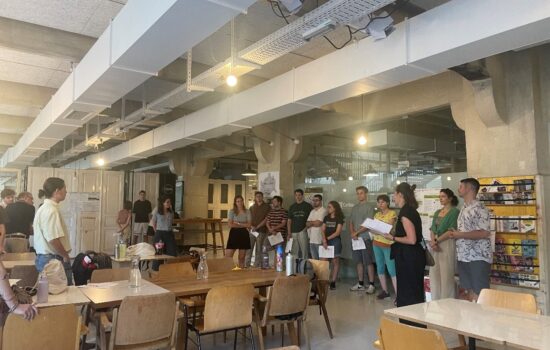
As part of the 2024 summer semester’s Practical Exercises in Urban Geography and Planning course on Urban Food Systems, led by Yvonne Franz and James Vandenberg, and supported by tutor and master’s student Michael Kloiber, 48 students delved into the theoretical and practical aspects alternative urban food systems. Throughout the semester, the students worked in groups, examining various food related initiatives and organizations in Vienna, to better understand and question, the variety of ‘alternative’ food practices emerging in cities. These organizations ranged from Ernährungsrat Wien and Gartenpolylog Wien to Wilde Hummel, as well as Mila Mitmach Supermarkt and Kleine Stadt Farm. The students conducted interviews, document analysis and systems mapping to study their chosen organizations.
The semester concluded with a Poster Fair under the theme “What the Food? Exploring Alternative Urban Food Systems” held at Kulturhaus Brotfabrik. Jury members Christina Gugerell from Caritas Stadtteilarbeit (and partner of Yvonne Franz in the GEtCoheSive project) and Marta Lopez Cifuentes from BOKU Wien attended the event. At the poster fair, the students presented their creative posters which included their research process and results. Following this, a peer-feedback session was conducted, where students evaluated each other’s work. Below is the winning poster, crafted by the Caritas Wien Community Kitchen group, who examined the initiatives impact on social ties among the citizens of the 10th district in Vienna through the lens of agroecology, alongside a few other notable posters that illustrate the diverse linkages between food and cities.
